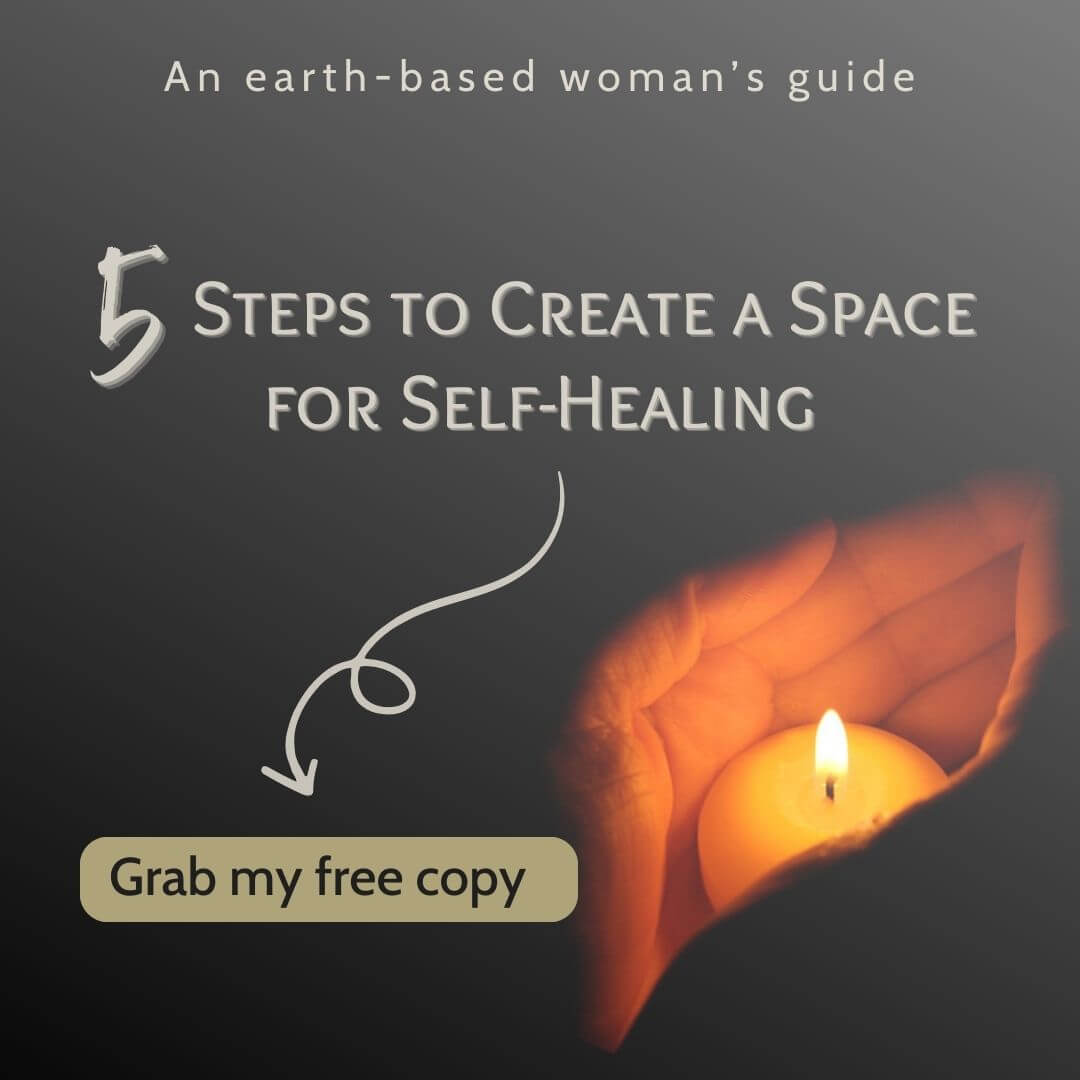Toxic Positivity and Spiritual Bypassing Through a Feminist Lens

by Corinna Wood
Toxic positivity? Spiritual bypassing? It’s a big deal, especially for women.
Let's face it: it's high time for us, as women and as feminists, to take a hard look at how spiritual bypassing impacts our experiences, thinking and choices.
As you know, far too many girls and women today grapple with the impacts of abuse, trauma, and harassment inflicted predominately by men—emotionally, physically and sexually. Gender-based violence is a painful reality of today’s world.
And what makes it all the more challenging is this: our spiritual institutions and even our own beliefs often echo today's patriarchal norms. Yes, even in so-called "progressive" spiritual groups, women can often get stuck in a web of confusion and harm.
That's why we've got to untangle this mess with a feminist lens.
Know that I speak from personal experience as a survivor of child sexual abuse and the ensuing complex PTSD. I also speak from professional experience in various settings with thousands of women from all walks of life, over my decades in the field of holistic healing.
Table of contents
- What Is Spiritual Bypassing
- 6 Sticky Points of Spiritual Bypassing and Toxic Positivity
- 4 Facets of Authentic Healing
- The Wise Woman Way
- Embracing Your Light and Your Dark
What Is Spiritual Bypassing?
First, let's delve into the essence of spiritual bypassing.
Spiritual bypassing is like slapping a band-aid on a deep wound. It's the art of sidestepping the raw, messy, and uncomfortable parts of our human experience in favor of a more superficial, blissful spiritual facade.
Imagine for a moment, a woman who's been through unspeakable trauma.
Rather than confronting that pain, she tries to stay focused on "positive vibes."
She finds ample spiritual teachings that reinforce the notion “just think good thoughts.” She internalizes spiritual jargon to justify avoiding her emotional wounds, believing that she’s rising above it all.
But, in reality, she’s merely created a comforting illusion in an attempt to ignore the festering wounds beneath. Wounds which over time show up in various ways—from relationship difficulties to health problems.
Spiritual bypassing can take many forms. Such as toxic positivity and unfounded optimism. Avoiding and repressing true emotions. Disparaging or dismissing human needs. Denying racism in favor of oneness. Masking insecurities through illusions of spiritual superiority.
It's like painting over a cracked wall without repairing the foundation. It may seem fine on the surface, but underneath, the problems persist, growing more complex and challenging to address.
In essence, spiritual bypassing disconnects us from our genuine selves and the healing we so desperately need.

One Common Form: Toxic Positivity
Toxic positivity is one form of spiritual bypassing that affects many women today.
It manifests as pressure to wear a mask of perpetual cheerfulness. Toxic positivity insists that only “positive” emotions should be on display, sweeping those pesky “negative” feelings under the rug.
But real life isn't all rainbows and unicorns.
We're human, and that means experiencing the full spectrum of emotions. The denial of the full range of authentic feelings is a superficial and ineffective approach to personal growth and healing.
 Spiritual Bypassing As a Women’s Issue
Spiritual Bypassing As a Women’s Issue
 Toxic positivity and spiritual bypassing can glorify the submissive role of women—to stay soft, nurturing, gentle, loving…
Toxic positivity and spiritual bypassing can glorify the submissive role of women—to stay soft, nurturing, gentle, loving…
This discourages women from acknowledging and confronting the very real and deeply ingrained sexism and gender-based violence in our society.
This is true of racial injustice as well. Perhaps you’ve considered how "I don't see color" and focusing on "white light" in spiritual communities could unintentionally perpetuate inherent racism?
The idea behind these statements is to promote colorblindness or unity, but in reality, they ignore the unique experiences and challenges faced by people of color. By dismissing racial differences, we're ignoring the systemic racism deeply ingrained in our times.
Similarly, not acknowledging the gender-specific challenges women face might seem like promoting equality. However, since this perspective overlooks the ongoing power differentials between women and men, it denies the pervasive impact of patriarchy. (Of course, for women of color this is even more complex, with the impacts of sexism compounding those of racism.)
By refusing to acknowledge gender disparities, it becomes challenging to recognize and address how the roots of our own experiences are impacted by gender oppression.
I acknowledge that there are many important dynamics of oppression. For simplicity’s sake, this article focuses on the impacts of spiritual bypassing on women in relation to ingrained–and even internalized–sexism still inherent in today’s world.
6 Sticky Points of Spiritual Bypassing and Toxic Positivity
Problem #1: Glossing over difficult emotions
As women, we’re often told we’re “too sensitive” or “too emotional.” These messages diminish the validity of our feelings.
Yet our feelings are natural and normal responses to the challenges we experience day-to-day and in our lives.
Especially since we’re taught from an early age to put the needs of others above our own, it's no wonder that we have all those feelings! Frustration and confusion. Anger and resentment. Weariness and exhaustion.
Spiritual bypassing attempts to gloss over these emotions, dismissing them as hindrances to our spiritual progress.
It's like ignoring the currents and waves as you’re trying to sail across a vast ocean.
True healing and empowerment arise from embracing your entire emotional spectrum— understanding that every emotion, positive or negative, offers valuable insights.
Problem #2: Silencing the voices of women’s experiences
Some spiritual traditions promote the notion of ascending beyond your reality, your body, and your lived experiences. Essentially asking you not to think, not to feel.
Or girls and women are encouraged to be more “feminine”—soft and gentle, trusting and receptive. In essence, submissive.
By telling you not to feel, or to limit feelings to those that are acceptable, they are trying to silence your inner voice, your inner wisdom and your full range of experiences.
In particular, spiritual bypassing can often stifle the voices of survivors. And any of us with difficult or traumatic experiences. It discourages women from sharing their stories because they're expected to have transcended their pain.
This silencing and suppression can be as damaging as the initial experiences.
Your thoughts and feelings matter; they're integral to your journey, wisdom, and strength.
Problem #3: Excusing the abuse
In the realm of spiritual bypassing, we often encounter well-intentioned but misguided phrases like "You were meant to have those experiences to learn valuable lessons," or "You create your own reality."
That downplays the profound impact of systemic and societal factors, particularly for women and women of color.
In this way, spiritual ideologies can sometimes excuse abuse—by shifting the focus onto the survivor's perceived spiritual journey, leaving crucial societal influences unexamined.
To make matters even worse, some spiritual teachings propagate the concept that abusers are loving souls who came into your life for your benefit to teach you valuable life lessons.
This misguided perspective not only ignores the very real psychological trauma inflicted—but also endangers the survivor's psychological integrity.
The repercussions of such a concept reinforces shame and self-blame. And exacerbates Stockholm Syndrome, the phenomenon where victims bond with and feel loyalty to their abusers.
As Ashley Riley writes, "The concept [of soul contracts] can be extremely harmful to abuse and sexual assault victims, who already feel responsible for the trauma that has been perpetrated on them.”
Problem #4: “Just forgive and forget”
Forgiveness is often touted as a cornerstone of many spiritual traditions. However, when survivors are pressured to forgive their abusers prematurely, it can exacerbate their pain rather than alleviate it. Like rubbing salt into a gaping wound.
Genuine healing demands that you acknowledge the pain and harm—it cannot be rushed. In familial cases, it may take many years to fully recognize and integrate that someone you loved and cared about was also a perpetrator who willfully exploited and betrayed your trust.
It’s all too common to point the finger of blame towards yourself.
Self-forgiveness is the priority for authentic healing. Beginning with acknowledging that being in difficult situations was not your fault.
It is essential to recognize that forgiveness is a complex, evolving process—and it is perfectly valid for survivors to withhold forgiveness until they are ready, if they choose to forgive at all.
This must be a personal choice rooted in an authentic understanding of one's own journey and not imposed as an external expectation.
Problem #5: Smoke and mirrors around painful relationships
Inadvertent reenactments in adult relationships are all too common (Journal of Psychotherapy and Research). Out of genuine deep psychological confusion, survivors of childhood abuse sometimes use spiritual concepts to mask their own reenactment of past abuse within adult relationships.
This creates a downward spiral keeping them ensnared in pain.
Take a close look if you’re struggling through painful relationships by saying “Love conquers all,” “Relationships are hard work,” or “Just love harder.”
Those messages can be used to glorify difficult, toxic or even abusive relationships.
Yes, all relationships take commitment and a focus on communication. And healthy relationships feel like the wind beneath your wings—supporting the needs of both people.
Spiritual concepts can even be used to cloak personal motives for some women in the sex industry—couching reenactment as sacred work or tantric practices. It’s no coincidence that studies show the connection between sex assault survivors and those who exchange sex. (Sage Journals).
Let's be unequivocal: spiritualizing re-victimization only obscures the truth and prolongs destructive patterns. Spirituality should never serve as an excuse for perpetuating cycles of abuse.
Problem #6: The same old patriarchal stuff
In some spiritual traditions today, women are still burdened with the expectation of being sacrificial or submissive.
Often there's a separation of qualities into masculine and feminine characteristics. Do you see how that division could unintentionally reinforce outdated norms? For example, women might be encouraged to "embrace your sacred feminine” rather than being loud, opinionated, angry.
It's like being told to squeeze into a narrow box labeled "soft and submissive," denying the vast spectrum of our emotions and experiences. All of your emotions and qualities—whether viewed as masculine or feminine—are part of your sacred experience as women.
So embrace your anger, your strength, your softness, and every shade in between.
By doing so, you honor your full, embodied experience as women, breaking free from the constraints of old norms and paving the way for authentic healing.
A body story

In my teens, I was already struggling with body image and my relationship with food. It’s hard not to, with all the societal messages about what a woman’s body should look like.
Then I immersed myself in alternative approaches to health that idealize ascending out of the body. The message was clear: try to transcend your body to become more spiritual. Towards a “higher self,” supposedly superior to your physical existence.
In the kitchen, that translated to cutting out one food group after another. One of my books went so far as to demonize all foods containing fats or oils, down to nuts and seeds. And even suggested that when women stopped menstruating on this plan, it was a sign they were becoming “pure, holy, light and good.” Seriously?!
I'm sad to say that in my confusion at the time, I thought to myself, “Oh, that’s why my periods are so far apart––I’m becoming holy and pure!” And I cut out almond butter, one of my remaining staples.
In truth, my malnourishment contributed to multiple health issues which took me years to unravel.
Fortunately, I soon discovered the paradigm of nourishment in the Wise Woman Tradition, which resonated deep within me. The Wise Woman Tradition honors your body as sacred. You tap into your body’s wisdom through your intuition and inner knowing.
You're invited to be more embodied, not less.
As I incorporated healthy foods, my period returned. And in moving beyond the illusion of separation and duality, I was able to re-integrate with myself, to become more fully present with the physical, emotional and spiritual aspects of my being.
I began to feel more whole again.
4 Facets of Authentic Healing
Now, let's look at several facets of authentic healing that truly values and empowers women. The Wise Woman Way invites you to embrace every shade of your existence, not just the “white light” ones. Truly holistic healing isn't a linear journey. It's about being authentic, acknowledging the shadows, and connecting with your inner power.
Facet #1: Embracing your feelings
 Authentic healing means allowing yourself to feel. It takes immense courage to confront the depths of our emotions and experiences.
Authentic healing means allowing yourself to feel. It takes immense courage to confront the depths of our emotions and experiences.
Yet the whole range of your emotions are sacred and carry deep wisdom.
As you connect with your emotions, you can also turn your attention to your underlying needs. Are you angry about your unmet needs for respect? Do you feel hurt in relation to your needs for safety, or connection?
It's totally understandable to feel scared about acknowledging your feelings—and your underlying needs. As a young girl, you were probably told early on to disconnect from yourself in those ways.
By acknowledging your pain, you honor your unique story, laying the foundation for authentic healing.
And as you embrace all of who you are, you’re also helping to heal your younger ones who still live within you.
Facet #2: Healthy boundaries
 Setting and maintaining boundaries is about defining what's acceptable and what's not in your life.
Setting and maintaining boundaries is about defining what's acceptable and what's not in your life.
By learning how to recognize and respond appropriately to potential threats, your boundaries can serve as your defense against manipulation and abuse.
Yet boundaries are not just about building walls; boundaries are also a way to protect your life force from getting so depleted that you can’t show up fully with those you love.
Letting your loved ones know what you need to be true to yourself is actually a way to build mutual respect, trust, and intimacy. Talking about boundaries in relationships opens up a dialog to see how the needs of both people can be met.
Facet #3: Self-reflection and expression
 Instead of attempting to transcend your thoughts and feelings, dive into them with curiosity and attention. Journal your thoughts or express yourself through art—even if it's as simple as scribbles on a page.
Instead of attempting to transcend your thoughts and feelings, dive into them with curiosity and attention. Journal your thoughts or express yourself through art—even if it's as simple as scribbles on a page.
Then take a step back and notice what these expressions reveal to you.
You can engage in profound self-reflection by considering your choices and identifying recurring patterns. Reflect on how your psyche has been shaped by your life experiences. Acknowledge the societal influences that have contributed to the challenges faced as a girl or woman.
And seek support on your journey towards healthier and more self-loving ways of being.
Facet #4: Connecting with sisters
 Connecting with those who've walked similar paths can be incredibly healing. Whether through support groups or trusted communities, these safe spaces offer validation and support.
Connecting with those who've walked similar paths can be incredibly healing. Whether through support groups or trusted communities, these safe spaces offer validation and support.
Connecting with other women can support you in comprehending the societal and systemic nature of challenges you face. The issues you face are not just something that you created out of thin air.
Sharing with and listening to a trusted friend or a circle of sisters, you recognize that you’re not alone.
A sharing circle format in which each woman has a chance to speak without crosstalk is a favorite among my students and extended community. That way, each woman can speak and be witnessed.
We all need places where we can express our truth, free from judgment or pressure to fit into an idealized spiritual image. So seek out safe spaces—and safe faces.
The Wise Woman Way
 Moving away from spiritual bypassing and duality-based thinking is nothing less than a paradigm shift.
Moving away from spiritual bypassing and duality-based thinking is nothing less than a paradigm shift.
The either/or paradigm is predominant in mainstream culture, and even in much of the “alternative” sensibility.
Again, it’s all about the “light” and a predisposition to shutting out what is mysterious and “dark.” That tends to include the Earth—which remains untamed despite all efforts to master her—and woman, whose body and its great mysteries are intricately intertwined with the Earth’s body.
When we move from a perspective of either light or dark, to a configuration of both light and dark, we move away from this striving to transcend our bodies and our emotions; from a perspective where the divine is something outside of us.
In the Wise Woman Way, we understand our bodies as sacred and we trust our inner guidance. Often, we are so steeped in the cult of duality that the Wise Woman Way concept of wholeness is difficult to understand or accept.
Still, there’s a deep resonance that many women experience—a cellular memory of a way of life and a belief system that embraces a spiral that includes both dark and light, just as the natural cycles of our world constantly move through day and night, from dark moon to full moon, from winter to summer, from youth to old age and death.
In this way, rather than cherry-picking a few pretty fragments, it's about embracing the entire tapestry of who you are. From the colorful shining ribbons to the messy, tangled threads.
Embracing Your Light and Your Darkness
In a world filled with quick fixes and bypasses, remember that healing is about embracing every shade of your existence—not just the “white light” ones. It's about being authentic, acknowledging the dark stuff, and connecting with your inner power.
As you digest and reflect on all of this, you might feel a bit overwhelmed. That’s okay.
Together, we're shaping a world where healing isn't hurried but a transformative journey.
Take a deep breath and trust your instincts. Start with one step that calls out to you right now. It could be getting a journal, setting up time with a trusted friend, or reflecting on a boundary you might need to set. Begin there, and the next step will follow.
Remember, just as plants and trees require the full cycle of seasons, from the darkness of winter to the brightness of summer, to thrive and flourish . . .
Embrace the ebb and flow of your own inner journey. Acknowledging both your light and your darkness.
______________
Spread the wise woman ways! Link to this article from your website or share with your friends using this button~
Comments ~ what stands out for you today?








